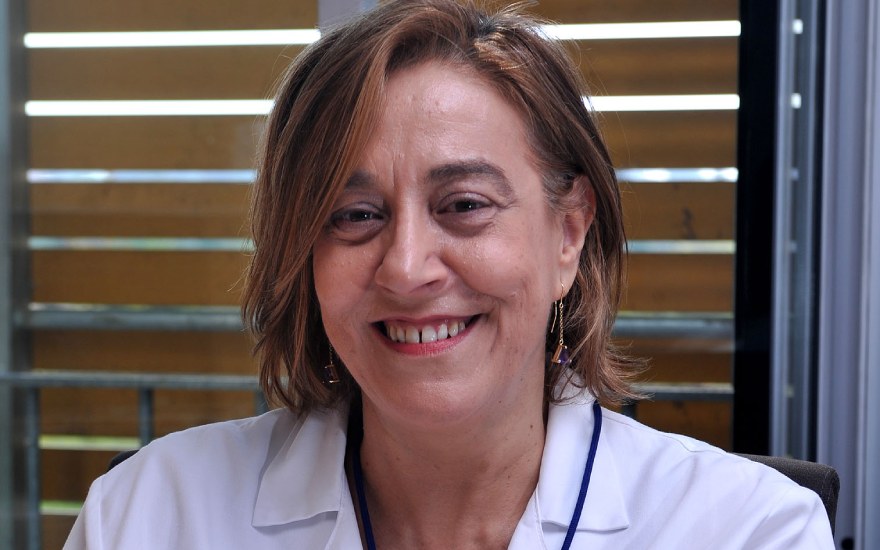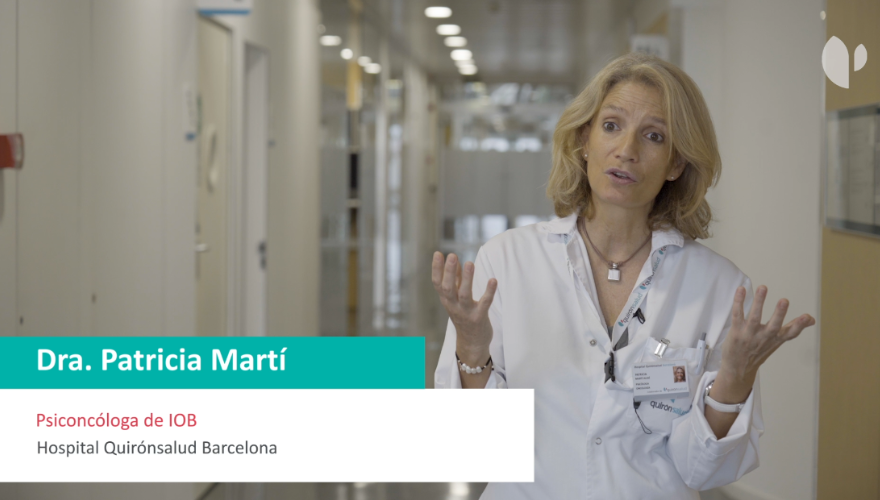Psychology
Find out everything you need to know about psychology, its field of study and the different therapies that can be applied to the most common mental illnesses. Find the professional who can offer you the psychological help you need and book an appointment at one of our hospitals. In the Child-youth stage, we work on problems from the time the baby is born based on the child’s temperament, and continue with the school stage and finally, with the stage of adolescence and the beginning of adulthood with all the difficulties that these stages can bring.

What is psychology?
Psychology is a field of medicine that focuses on the study and analysis of the mental processes and behaviour of human beings, both individually and in groups. Its main goal is to understand how people feel, think and act in order to provide them with the tools they need to cope with the challenges they face on a daily basis and to enjoy good mental health. In order to work successfully with children, adolescents and young adults, we need to treat them both on an individual level and, in certain cases, on a group level. We also need to manage the family and the school environment, as well as adapt and specify realistic and achievable expectations on an academic and work level.
What does psychology study?
Our psychology units study mental illnesses and emotional or behavioural disorders with a view to preventing and treating them on an individual basis. Given the extent of its field of study, which ranges from basic psychological processes to complex mental illnesses, this discipline can be divided into different specialisations:
- Clinical psychology, which investigates factors that may cause distress or mental disorders in people in order to assess, diagnose, treat and, if possible, prevent them.
- Cognitive psychology, which focuses on the functioning of the mental processes that enable human beings to think, remember or learn.
- Developmental psychology, which studies psychological and behavioural changes over time, from infancy to old age.
- Forensic psychology, which works in the legal field and involves expert opinions, preparing reports and offering advice to the justice officials.
- Medical psychology, which focuses on providing mental wellbeing to the sick and helping doctors establish an appropriate relationship with their patients.
- Neuropsychology, which investigates the relationship between brain structures, cognitive functions and emotional processes in both healthy people and those who have suffered neurological damage.
- Occupational psychology, which assesses the behaviour of individuals in the workplace.
Which patients is it for?
Psychology treats patients who feel unwell, who show behavioural disorders, who suffer excessively or who lack the necessary tools to solve the problems they are facing, and therefore need support at a certain point in their lives. In addition, when a child is suffering from a disorder at home, it affects the entire family, and therefore therapists must also address the family and school environment.
Techniques, procedures and diagnostic methods
Our specialist psychologists adopt a multidisciplinary approach, as they use different techniques depending on the pathology they are dealing with or their field of action. The procedures most commonly used by psychologists include:
- Eye movement desensitisation and reprocessing therapy (EMDR): a highly effective type of psychotherapy for treating trauma, anxiety or depression. It is based on the patient’s innate way of processing information, and therefore reduces the time spent talking about traumatic memories and dedicates it to working with the association of thoughts and sensations.
- Cognitive Behavioural Therapies (CBT): these help people cope with stressful situations and are very useful for eating disorders, post-traumatic stress disorder or depression. Cognitive behavioural therapy helps patients become aware of their negative thoughts and cope with demanding situations in the best possible way.
- SPECIFIC NEUROPSYCHOLOGICAL ASSESSMENTS TO DETECT EACH DISORDER. We use specific, validated assessment instruments to detect complex pathologies such as: ASD, ADHD, Learning disorders, Personality disorders...
- PSYCHOPEDAGOGICAL RE-EDUCATION: this involves working on the difficulties detected in an appropriate, exhaustive neuropsychological assessment (cognitive, attention, learning...) and working with different strategies to minimise their impact at school, work or social level as much as possible.
- ANIMAL-ASSISTED THERAPY (WITH DOGS). There is scientific evidence that this therapy works with adolescents with mental health pathologies.
- DBT (Dialectical Behaviour Therapy). This is the strongest and most effective technique for working with personality disorders.
- Group therapy with homogeneous groups (with respect to the disorder and age group). In certain pathologies such as ADD, Personality disorders and ASD. It has been shown to be highly effective.
- Therapeutic outings (beach, excursions, leisure activities) with groups of patients: where patients can put into practice what they have learned in therapy in a natural context.
Diseases and symptoms
Main pathologies and diseases
Our team of psychologists mainly treats patients with the most common mental disorders, including:
- Anxiety
- Depression
- Attention Deficit Hyperactivity Disorder (ADHD)
- Agoraphobia
- Eating disorders such as anorexia or bulimia
- Stress
- Personality disorders
- Addictions
- Obsessions
- Post-traumatic stress
- Autistic spectrum disorders (ASD)
- learning disorders
- self-harm
- bullying
- school phobia
- neurodevelopmental disorders (ADHD, ASD...)
- eating disorders
- elimination disorders
- sleep disorders
- gender identity disorders.
Symptoms related to mental illnesses
Although mental disorders can present a wide variety of symptoms, some are particularly significant, such as:
- Sadness
- Paranoia
- Deliriums
- Fatigue
- Hallucinations
- Sudden mood swings
- Problems sleeping
- Despondency
- Drug abuse
- Excessive worrying
- Social isolation
- Changes in weight and body image
- Identity issues
- Self-esteem difficulties
- Problems with social relations
- Academic and work-related difficulties
About the psychology consultation
We solve any doubts you may have before you see the specialist
It is sometimes difficult to know when you need to see a psychologist and it is not easy to take the first step. Psychological therapy can be highly beneficial to any person needing to improve their wellbeing. However, there are situations in which it becomes a mandatory choice: lacking the strength to face a problem, feeling apathy and disconnection with the outside world or having a memory from the past that prevents us from moving forward.
In the case of children, youth and young adults, it is generally the parents who come to ask for help due to difficulties that arise in the family environment or through a recommendation from the school.
What should you keep in mind?
On your first appointment, the psychologist will spend time listening to you to understand why you need help. They will also create an atmosphere of trust so that you can express yourself freely without feeling judged. In subsequent sessions, they will establish a dialogue with you to help you understand your feelings and modify your behaviour.
In the case of children or adolescents, therapists need to work on the bond with them, while also sharing all the information with the parents. Therefore, it is important during the first sessions to gain the child or teenager’s trust so that they can express themselves in the therapeutic environment in a comfortable and safe way.
What should I take to the appointment?
At Quirónsalud we recommend preparing the consultation to facilitate the psychologist’s work and help the patient remember everything they want to say. For this reason, we advise bringing a list of the issues to be addressed, as well as the medical history and any treatments that have been carried out previously.
You may receive a questionnaire a few days before your appointment asking about your medical history, usual medication and other specific questions that will allow us to anticipate certain aspects of your consultation, helping us expedite your treatment and offer you a more personalised care. To do this, we recommend that you download the free Quirónsalud Patient Portal application, which will facilitate communication with your healthcare team.
Sometimes the therapist will set the patient a task to complete between sessions, where the child, adolescent or adult will have to do a specific activity. In most cases, parents will be informed and, in others, schools will also be informed, so that these activities can be worked on jointly.

If you have any further questions, please contact us through the Patient Services telephone number: 900 301 013

















































































